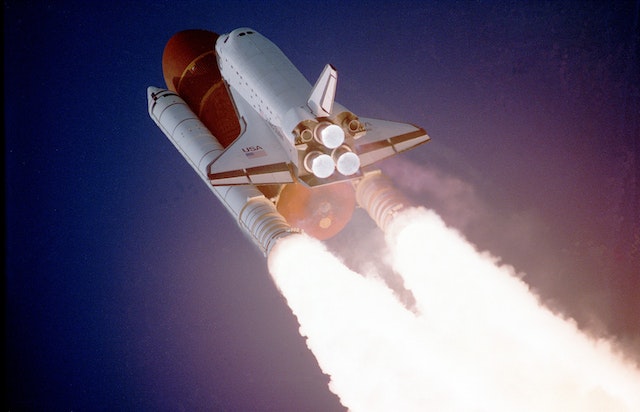What is the Space Economy?
- The space economy is the use of space to create value and provide benefits to humans. It includes activities such as telecommunications, earth observation, navigation, and space tourism.
The Current State of the Space Economy:
- The space economy is worth around $546 billion in 2023 and is growing rapidly. It is expected to reach $1 trillion by 2040.
- Recent years have witnessed an unprecedented shift from the domination of government agencies to thriving private companies like SpaceX and Blue Origin.
- The development of smaller, cheaper satellites, reusable rockets, and 3D printing are revolutionizing space exploration.
Benefits:
- Revolutionized Communications: Satellites have revolutionized communications by providing global telecommunications services such as television broadcasting, mobile phone services, and internet access. This has made it possible for people all over the world to stay connected.
- Earth Observation Satellites: Earth observation satellites can be used to collect data about the Earth’s surface, atmosphere, and oceans. This data is used for a variety of applications, such as weather forecasting, climate change monitoring, and disaster relief. This has helped us to better understand our planet and to respond to environmental challenges.
- Scientific Research: Space exploration has led to many scientific discoveries, such as the discovery of new planets and moons. This has expanded our knowledge and understanding of the universe.
- Creation of High-Tech Jobs: The space industry is a major employer, creating high-tech jobs in engineering, manufacturing, and IT. These jobs are well-paying and can help to boost the economy.
- Resource Extraction and Future Colonization: The space economy could also be used to extract resources from asteroids and moons. This could provide us with new sources of raw materials and could help us to colonize other planets.
Challenges:
- International cooperation: Space exploration requires international cooperation. This can be difficult to achieve, especially between countries with different political and economic interests.
- Accumulation of Space Debris: Space debris is a growing problem. In low-Earth orbit this debris can damage or destroy satellites, making it difficult and expensive to operate them. It can also pose a risk to astronauts and spacecraft.
- Regulation: There is no global regulatory framework for space activities. This can lead to conflicts and disputes.
- Geopolitical Tensions: The space economy is becoming increasingly globalized. This could lead to geopolitical tensions, as countries compete for access to resources and strategic positions in space.
The Future of the Space Economy:
- Automation in Space Missions: Automation has emerged as a critical component in space missions, enabling tasks that were once reliant on human intervention to be executed with precision and reliability. Spacecraft equipped with autonomous navigation systems can make real-time decisions, adapt to unforeseen obstacles, and optimize their trajectories for maximum efficiency.
- AI-Driven Exploration and Analysis: Artificial intelligence is revolutionizing the way we analyze and make sense of the vast amounts of data collected during space missions.
- Space Travel and Tourism: Space travel is becoming more affordable and accessible, and there is a growing demand for space tourism experiences.
- Rise of Private Players: Private players are rising in the space economy. They bring innovation and make space exploration more affordable.
Conclusion:
The space economy is a rapidly growing sector with the potential to generate significant economic benefits for countries around the world. The space industry is already responsible for millions of jobs and billions of dollars in economic output, and this number is only expected to grow in the years to come.
However, it is important to ensure that the benefits of space exploration are shared equitably among all countries. This means that global regulation is needed to ensure that space is used for peaceful purposes and that no one country can claim ownership of space or its resources.
The development of global regulation for space exploration is a complex and challenging task, but it is essential if we want to ensure that space is a force for good in the world.
Your Turn…
What’s your take on this topic? Express your point of view in the comment section below. Subscribe to our blog to read answers to the trending GD topics.
Copyright @ Group Discussion Ideas.

